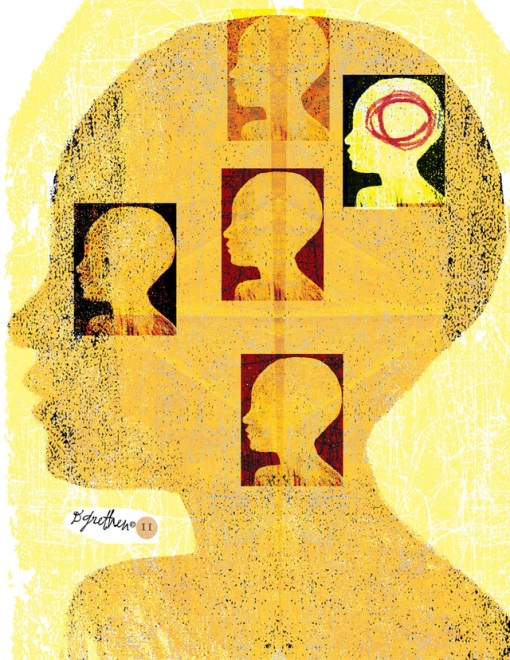
Saturday June 24, 2017

THE hope, love and anxiety that welcomes a baby into the world is a familiar story experienced by every generation. Our grandparents may have feared their baby would die of a childhood disease that is now preventable. Mothers and fathers today have a particularly modern fear that their parents probably never considered: Will my baby have autism?
Current estimates are that the parents of one in 68 infants will discover, in the first few years of life, differences in their child’s development that signify the early signs of autism spectrum disorder (ASD). The symptoms — challenges with communication, poor social engagement with people, unusual interests or repetitive movements — emerge at the same time new parents are learning to navigate the unfamiliar territory of caring for a young child.
Parents may feel overwhelmed, sifting through piles of contradictory advice to ensure they have the most up-to-date information available to raise a healthy, happy child.
However, some decisions a new parent faces should not be difficult:
• We know beyond a doubt that immunizations prevent serious, even fatal, childhood illnesses.
• There is no scientific evidence that immunizations cause autism.
Measles, a serious disease that can cause hearing loss and swelling of the brain that leads to intellectual disability, is still a primary cause of vaccine-preventable death for children in many parts of the world. Before 1963, measles used to affect 3 million to 4 million U.S. children every year. By the year 2000, measles was considered eradicated in our country — a true public-health victory.
Measles outbreaks are recurring throughout the U.S. This year the Centers for Disease Control and Prevention reported the highest number of mumps cases in 10 years. More than 400 people in Washington state contracted the illness, including an outbreak among University of Washington students.
A similar story can be told for mumps, polio and a host of other diseases that used to be common, used to cause lifelong disability and even death, and were largely eliminated in the United States due to childhood immunizations. But as memories of these illnesses fade, along with the fear they caused new parents, this victory is at risk as some parents elect not to immunize their babies.
To be clear, there is no current scientific debate about whether vaccines cause autism. Study after high-quality study — carefully conducted and peer-reviewed — has provided overwhelming scientific evidence that there is no link between childhood immunizations and autism.
However, misinformation about a purported link continues to circulate. A Somali immigrant community in Minnesota fell prey to this misinformation, and many of these families refused the vaccine. This spring, the community was hit by the largest outbreak of measles in 30 years that mostly affected unvaccinated children, many of whom had to be hospitalized.
Minnesota health officials link this outbreak to decreasing immunization rates, from 92 percent of the Somali community in 2004 to about 42 percent today. And what contributed to this decline is a fear among new parents that vaccines cause autism.
Nearly 20 years ago, British researchers linked the MMR vaccine to autism in a study, since widely discredited and attributed to false data. The question itself — “Do immunizations cause autism?” — was well suited to be addressed by science.
The question of a possible link mobilized significant public resources to fund scientific studies. The question has been put to rest — at least as far as scientists are concerned.
Scientific facts are not the only driving force in decision-making. As a society, we must be able to find common ground to talk with each other, agree on what we know and don’t know, and at the same time listen to the fears and experiences of new parents and those who have chosen not to immunize their children.
Scientists and clinicians must be there for parents of children with ASD who are asking a legitimate question: Why did this happen to my child? And even though we understand that ASD is related to a complex interplay between genes, brain and development, for the majority of individuals with ASD, we cannot yet specify the exact cause of their autism, leaving parents to search for the answers.
The autism community I know is like a small town. Clinicians and scientists who spend our lives working to develop evidence-based interventions and searching for causes that can be scientifically verified work beside community members who believe that immunizations cause autism. We disagree on this point, often passionately, but the passion that brings us together is stronger — we love our children, we want to live in an inclusive society, we want all children to get the best care we can give them, and we know that we need each other to find our way.
The autism community faces many pressing issues, while our society as a whole faces legitimate debates in the arenas of child health and education. Many of these questions cannot be answered easily or definitively by scientific inquiry. For example, how can we find a way to talk about immunizations and autism without deepening the polarization in our society? How can we avoid pushing each other into an “us”-versus-“them” argument and build a bridge between the “knowers” and the “believers”? How can we address the perceived chasm between “ivory tower” scientists and the “real people” on the street? We have to inspire a dialogue.
There are certainly many individuals and groups who are not having a conversation. Somewhere the basic elements necessary — mutual respect and trust — may have been lost, or perhaps the “echo chamber” that has developed in the age of social media, in which people consume news that meets only their views, is to blame.
But in this, as in so many other arenas today, we must urgently find a way out of our impasse and rediscover the connections between us so that every child with autism has access to high-quality intervention and can reach his or her full potential.